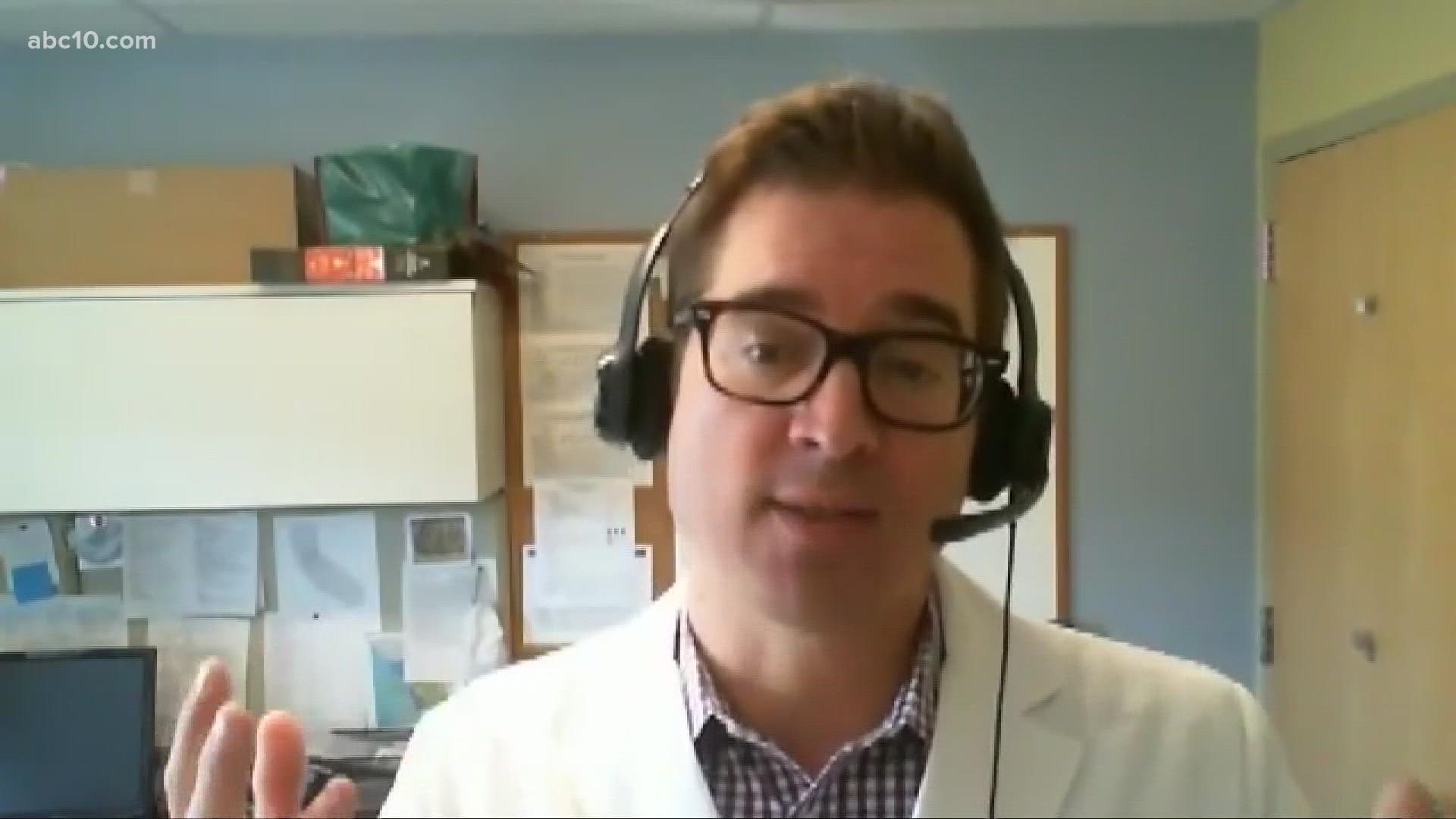CALIFORNIA, USA —
Designated by the World Health Organization (WHO) as a "variant of concern," the omicron variant of COVID-19 has raised concerns among many.
It's not clear where the new variant emerged, but scientists in South Africa were the first to alert the World Health Organization. It has since been seen in travelers to Belgium, Botswana, Hong Kong and Israel.
Dr. Michael Vollmer, a Northern California Regional Epidemiologist with Kaiser Permanente, spoke with ABC10 to break down what's known about the variant.
This interview has been shortened for brevity.
What do we know about the omicron variant?
"When we say variant, that means that the virus has changed somehow, and its ability to transmit or cause disease, or its ability to get around the immune system has changed somehow. And so public health has now labeled that as being a variant of concern or a variant of interest, and the WHO made that classification over the weekend that this is a variant of concern."
"And so how this was found out is that South Africa, their public health department, has been very active in typing viruses from around the country. They noticed an increase in transmission in a part of South Africa, and then, now this is very preliminary evidence that they're getting from the month of November, that the virus has changed. And they're correlating that with an increase in cases that they're seeing that's gone up. And they very appropriately alerted those scientific community around the globe that this was concerning, and that they were seeing this increase in cases, and it's associated with a new variant of the virus."
What kind of preparations are underway for the variant?
"We're very aligned with the California Department of Public Health, and we've participated in their testing program that helps identify these changes in the virus. So our positive isolates are sent to the California Department of Public Health to do this more specific testing, to look for these kinds of changes. So that's number one. Number two, we really urge everyone to get vaccinated against this virus. Vaccination has been far and away the best method at preventing transmission and preventing illness. And third, this really reaffirms to us the need, particularly at the holiday time, that we follow all the recommendations that have helped us get through these prior surges of disease in this pandemic and that's masking when you're around other people, and particularly when you're indoors, keeping some distance from people that you don't know or in public settings, and washing your hands. So that along with vaccination, we're re-emphasizing across our organization, and this is just really particularly important, because we've also seen nationally increased cases of influenza. And so we didn't experience that in 2020."
"There's some concern, as we've relaxed in public settings a lot of the mitigation that got us through 2020 and parts of 2021, that we may see influenza at the same time as we see COVID.... It's really important the scientific community now take that information, and and see -- does this really mean that this virus is more infectious? What does it mean in terms of the vaccine efficacy? I think we're going to get a lot more information on that over the next couple of weeks."
What should people keep in mind?
"It's really important for people to pay attention to their symptoms, particularly with vaccinations symptoms of this virus can be very mild: a chest cold, little bit of a headache, some congestion. All can be early signs of disease, and people really need to, vaccinated or not, really need to get tested, and also avoid exposing others if they have symptoms. The reason I'm emphasizing that is I know there's been a huge pent up desire to get together with people, to visit family and friends, we have millions of people traveling around the holidays, and that's just opportunity for this virus to spread -- new variant or not. I really urge people again, at this time, to check themselves before they visit or get together with people, get tested if they're symptomatic, get vaccinated, take all the opportunities out there.... Get vaccinated, protect yourself, wear a mask when you're indoors and wash your hands."
WATCH ALSO:



















